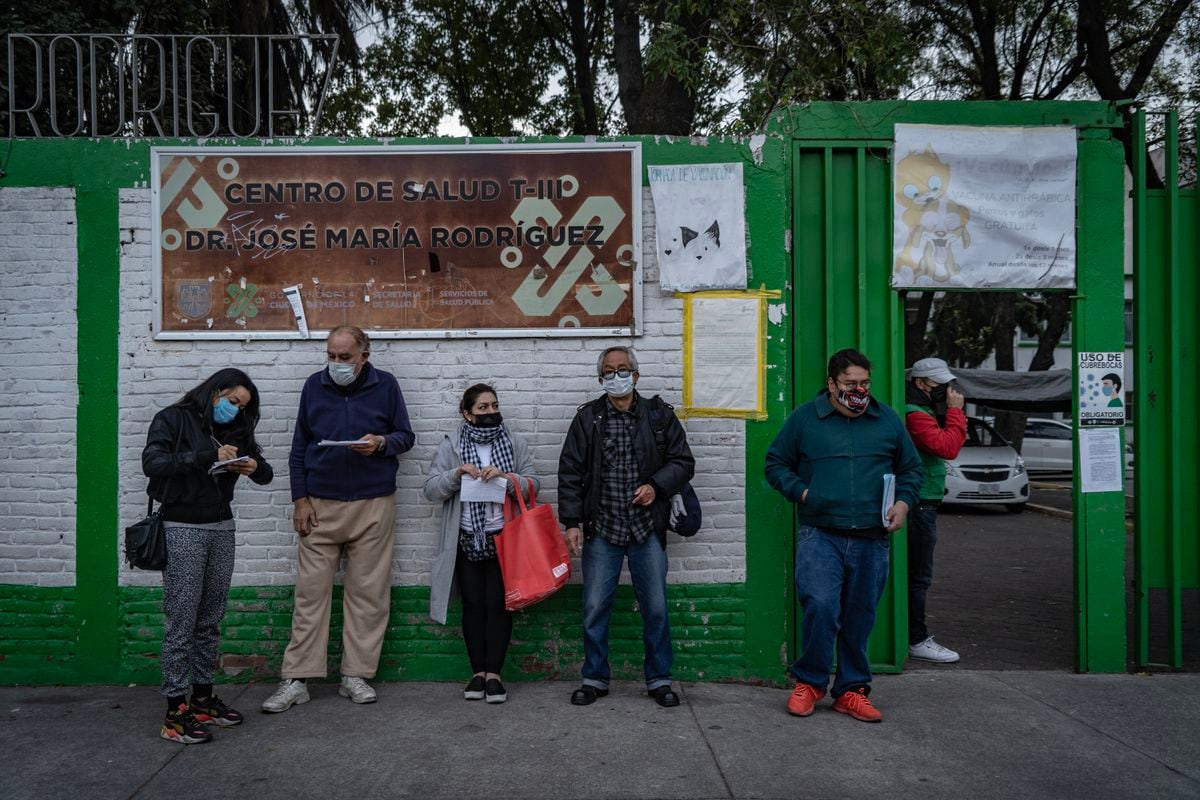Mexico starts the new year in the middle of the sixth wave of covid-19 and with an increase in cases of respiratory infections that have doubled compared to last year, according to data from the Ministry of Health.
Given the statistical growth, experts also point to a possible underreporting of coronavirus cases.
The rebound, among other factors, has to do with the cold fronts that have hit the country in recent weeks and have left minimum temperatures between -5º and 0º Celsius in some points, such as the mountains of Baja California, Sonora and Chihuahua.
"There is always an increase in respiratory diseases on these dates due to the change in temperatures," explains Mauricio Rodríguez Álvarez, professor of virology at UNAM.
Flus, colds and infections such as sinusitis or otitis, which appear on these dates along with the well-known influenza and covid-19.
Our change of habits with winter favors infections to rise.
“We tend to do more activities indoors, we gather more in poorly ventilated places, and the cold produces changes in the body that favor respiratory diseases,” adds the doctor.
According to the weekly report prepared by the General Directorate of Epidemiology of the Ministry of Health, during the first week of 2023, 459,618 cases of acute respiratory infections were registered, an increase of slightly more than 50% compared to last year, when the fourth wave due to covid in the country occupied priority in diagnoses.
Now, in the middle of the sixth wave, coronavirus infections continue to escalate, although according to what the authorities indicated with fewer hospitalizations and serious cases thanks to vaccination.
In the last week, 32,185 new infections were registered, a trend that has not stopped growing in recent weeks, compared to the last week of the year, where 25,170 cases were registered.
Rodríguez Álvarez considers that the increase in the figures for respiratory infections may also be due to a lack of diagnosis of new cases of covid-19.
Thanks to vaccination, which according to official figures covers 84% of the population, society has lost its fear or perhaps the "urgency", as the doctor mentions, to find out if you have coronavirus since prevention and care measures are similar quite like a flu.
"The general perception of the population is that it is a problem that is not as serious as a few years ago and that also means that people no longer seek a diagnosis, so it is very likely that there is a huge underreporting of cases," he explains. the.
According to the virologist, one out of every two covid-19 tests that are currently being carried out is positive, which means 50% of the results.
Unlike other diseases, pneumonia and bronchopneumonia have fallen by 13% compared to last year, from 123,206 cases to 106,677 infections.
At a time when the pandemic is more favorable to the population, Rodríguez Álvarez recommends not letting your guard down and resorting to that old acquaintance that helps stop contagion: the face mask.
“People who have symptoms, who use it, isolate themselves and avoid contagion in the office, school or universities.
Also in public transport and crowded places and those who can be absent from their jobs, do so ”, he underlines.
This measure has already been adopted by several local governments, such as Nuevo León, which once again made the use of masks mandatory in transport last December.
The specialist recommends reviewing the individual evolution, controlling the fever and ensuring that there is no difficulty breathing.
In case of complications, it is important not to self-medicate with antibiotics and see the doctor for a correct diagnosis.
"Antibiotics do not kill viruses, they are to counteract bacteria and have no effect on viruses that cause respiratory infections," recalls the virologist.
From the scientific community they also advise vaccination as prevention to prevent cases from being serious.
“Against influenza it is important that risk groups are vaccinated: health personnel, people over 60 years of age, children under 5, pregnant women and people with comorbidities.
Those over 60 should also be vaccinated against pneumococcus and the booster vaccination against covid-19 with Abdala is now available, for those who were vaccinated more than four or six months ago.
subscribe here
to the EL PAÍS México
newsletter
and receive all the key information on current affairs in this country

